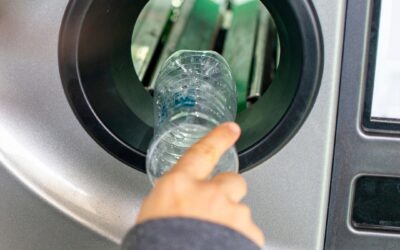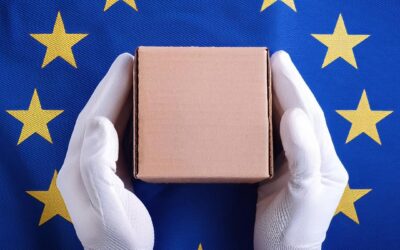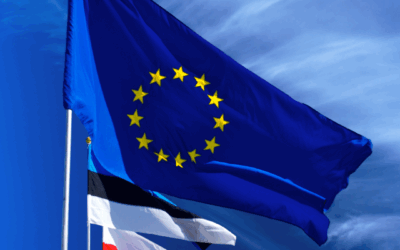EPR in Switzerland: What companies need to know about packaging recycling



Clear EPR obligations (extended producer responsibility) already apply in many European countries. Manufacturers and retailers are responsible for the entire life cycle of their packaging and must register with the relevant national systems and pay licence fees. But what is the situation in Switzerland?
Unlike in the EU, Switzerland does not yet have a standardised legal obligation for extended producer responsibility for packaging. Instead, many industries rely on voluntary take-back and recycling solutions. But does this mean that companies do not have to take responsibility? Not quite – depending on the product category and material, retailers may still have obligations. Anyone exporting to Switzerland or placing packaging on the market here should check which regulations apply.
Is there an EPR obligation in Switzerland?
Switzerland does not currently have a nationwide legal obligation for EPR for packaging, as is the case in the EU.
Responsibility without EPR regulation
There is no central register in which companies have to register and no standardised obligation to participate financially in a system that ensures recycling. Instead, various industry associations rely on voluntary take-back systems. These include, for example, PET Recycling Switzerland, the collection of used cardboard and glass as well as private take-back systems for plastic packaging.
However, the lack of a mandatory EPR scheme does not mean that companies in Switzerland are not responsible for their packaging. Even without an obligation, companies agree that anyone who puts packaging into circulation should ensure that it can be properly disposed of and recycled.
There are also product-related take-back obligations – for example for batteries, electrical appliances or certain plastic products. Companies need to find out individually what form of responsibility they want to take for their packaging and what prescribed rules apply to their products.
Differences to EPR systems in the EU
In contrast to Switzerland, EPR is legally enshrined in the European Union. The EU Packaging and Packaging Waste Directive (94/62/EC) stipulates that companies that place packaging on the market are responsible for its collection, recycling and disposal. In most EU countries, this means:
- Obligation to register with a competent authority
- Licensing of packaging with corresponding fees for recycling and disposal
- Obligations to provide evidence and report on the quantities of packaging put into circulation
One key difference: while responsibility in the EU lies directly with manufacturers and retailers, Switzerland relies more heavily on the voluntary contribution of companies and the involvement of consumers. As a result, there is no uniform, mandatory cost sharing, such as exists in Germany with the packaging licence.
However, there are also political discussions in Switzerland about a possible adaptation to the EU model. Companies with long-term operations in Switzerland should therefore keep an eye on possible developments. There is currently a lot going on here.
Packaging recycling and disposal in Switzerland
The Swiss waste management system differs significantly from the EPR models commonly used in the EU. It is based on a mixture of voluntary assumption of responsibility through industry solutions and municipal collection systems.
How does recycling work in Switzerland?
- Separate collection: Switzerland relies on a high level of public participation in waste separation. Materials such as glass, paper, cardboard, aluminium and PET are returned via municipal collection points or retailers.
- Voluntary take-back systems: Various sectors have set up their own recycling organisations. These include, among others:
- PET Recycling Switzerland for disposable drinks bottles
- IGORA & Ferro Recycling for aluminium and sheet steel
- VetroSwiss for used glass
- Swiss Recycling as an umbrella organisation for various collection systems
- Household rubbish and chargeable disposal: Packaging that is not collected via special collection systems often ends up in normal household waste. The costs for waste disposal are generally borne by the consumer via rubbish bag fees or municipal charges.
The financing of voluntary take-back systems
Unlike in most EU countries, there is no central organisation in Switzerland that manages packaging licences or levies recycling fees based on the amount of packaging. Instead, the voluntary systems are financed by industry contributions, membership fees or advance recycling fees (e.g. on PET bottles).
This means for you:
- There is no general reporting or licensing obligation for packaging.
- Anyone supplying packaging to Switzerland should nevertheless check whether it can be integrated into an existing take-back system.
- Without mandatory producer responsibility, there is a risk that less valuable packaging materials such as plastic packaging will be optimally recycled.
Challenges for companies that want to sell in Switzerland
Depending on the packaging material, there are different take-back systems in which companies can voluntarily participate. However, the lack of a centralised registration obligation can make it more complicated to find the right partners for sustainable disposal.
In Switzerland, consumers are used to decentralised disposal: while glass and PET are usually collected at collection points, a lot of plastic packaging ends up in household waste for which a charge is made. Companies therefore need to consider how they can make their packaging more recycling-friendly in order to maximise recycling. Those who sell plastic packaging, for example, should check whether they can be integrated into existing take-back systems.
Outlook for the future: Will there be a binding EPR regulation?
Even though Switzerland does not currently have a mandatory EPR regulation, there is growing pressure to introduce a regulated system. There is increasing discussion about legally binding producer responsibility for packaging. The following factors in particular could influence future regulation:
- Alignment with EU standards: As many Swiss companies also operate in the EU, harmonisation with European regulations could reduce the administrative burden and avoid competitive disadvantages.
- Increasing environmental requirements: Switzerland has set itself ambitious environmental targets – such as a reduction in resource consumption and an improvement in the recycling rate. A statutory EPR obligation could make a decisive contribution here.
- Unequal distribution of costs: At the moment, it is mainly consumers who bear the costs of disposal via rubbish bag charges. Mandatory producer responsibility could make companies more responsible and ensure fairer financing.
What does this mean for companies?
Anyone placing packaging on the Swiss market should prepare for possible changes at an early stage. Even if there is not yet a binding EPR obligation, companies could secure a competitive advantage in the long term through a sustainable packaging strategy and voluntary participation in take-back systems.
Conclusion: Although a binding EPR regulation in Switzerland has not yet been decided, it is certainly possible. Companies should follow developments closely in order to adapt to new requirements in good time.

LIZENZERO.EU makes packaging compliance in Europe very easy.
Do you ship your products to different countries in the EU? Many different legal requirements and obligations can make the whole thing quite complicated – but don’t worry, we’ll do it for you. How do we do it? With our licensing service, we take over all obligations for you by power of attorney. Sounds good? We’ll be happy to advise you.
For shipping to Germany, you can easily fulfill your packaging obligations yourself via Lizenzero.de.
Deposit systems in the EU explained
Deposit systems show that simple solutions help to keep packaging in circulation and increase recycling rates. However, there are major differences within the EU: while countries such as Germany, Sweden and Finland have been using deposits for years and achieving high return rates, other Member States are still in the early stages.
Mandatory from 2026: The EU Authorised Representative for Packaging explained
Europe is an attractive but regulatory complex market. One of the more complex requirements is the appointment of an authorised representative (AR). The AR is the central interface between the manufacturer and the European market surveillance authorities. The authorised representative plays an important role in product safety and extended producer responsibility (EPR) and is therefore becoming increasingly important to ensure access to the market.
Authorised Representatives in Europe: Which ones are there and what do you need them for?
Europe is an attractive but regulatory complex market. One of the more complex requirements is the appointment of an authorised representative (AR). The AR is the central interface between the manufacturer and the European market surveillance authorities. The authorised representative plays an important role in product safety and extended producer responsibility (EPR) and is therefore becoming increasingly important to ensure access to the market.




